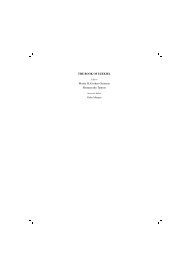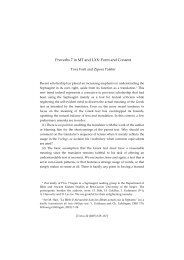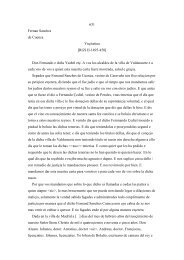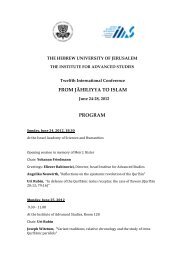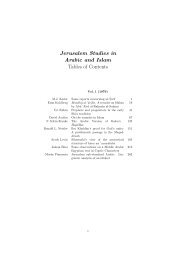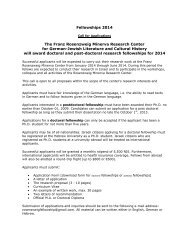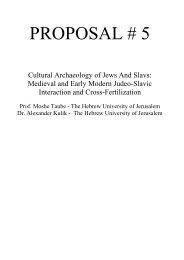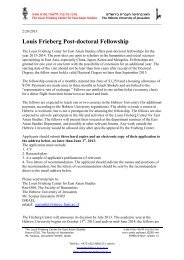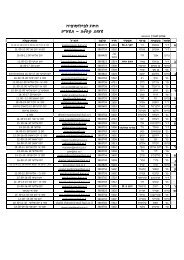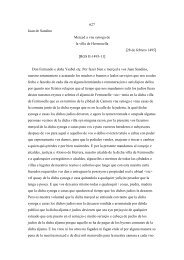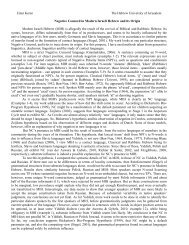Baber Johansen
Baber Johansen
Baber Johansen
You also want an ePaper? Increase the reach of your titles
YUMPU automatically turns print PDFs into web optimized ePapers that Google loves.
10<br />
consequences in both acts of worship and legal transactions. It<br />
concentrates on the physical and intellectual qualities of human beings<br />
that serve as "indications" (ÝalÁmÁt) for their capacity to act. If no proof<br />
to the contrary is available, physical puberty (bulÙgh) is a sign that<br />
renders probable the assumption that a person has acquired the reasoning<br />
capacity to discern between different acts and calculate the probability of<br />
their respective outcomes. Such a person is able to choose (ikhtiyÁr)<br />
deliberately between different options. This capacity to discern and to<br />
choose between different options is a sufficient condition for the capacity<br />
to accept the obligation to perform legal acts in the realm of transactions<br />
between human beings. It is also a necessary condition for those acts of<br />
worship, such as prayer and fasting, that are considered bodily acts.<br />
Choices always presuppose an open horizon of alternatives and an<br />
undetermined decision by the actor. The action that results from<br />
deliberate choice is contingent in a double sense: (a) its author could<br />
have acted differently; and (b) no human being ever fully controls the<br />
consequences of her choices. Unforeseeable and often unwanted effects<br />
will unavoidably follow. 39 The law thus regulates the legal consequences<br />
of contingent acts of individuals who have reached the age of puberty<br />
and are considered capable of sound reasoning. Under these two<br />
conditions their acts are imputable to them and they are responsible for<br />
them. The complex theological discussions about the relation between<br />
God’s power and knowledge and the human capacity to act play no<br />
determining role for the form of the legal norms. In the fiqh literature,<br />
legal acts that constitute personal obligations always presuppose a<br />
responsible person, a rational actor, whose acts are imputable to her or<br />
him. Whereas theology—since the tenth century—underlines God’s<br />
omnipotence, the legal literature highlights the capacity of the rational<br />
individual to take full responsibility for his acts. Consequently, irrational<br />
actors, such as small children or the mentally ill, are not responsible<br />
actors who can be obliged to perform personal legal obligations on their<br />
own. They have to be represented by rational actors. This type of<br />
representation is unproblematic in transactions between humans, but in<br />
the cult it is restricted to two acts of worship, the pilgrimage (Îajj) 40 and<br />
alms-tax (zakÁt). 41 When they come back to their senses, the mentally ill



